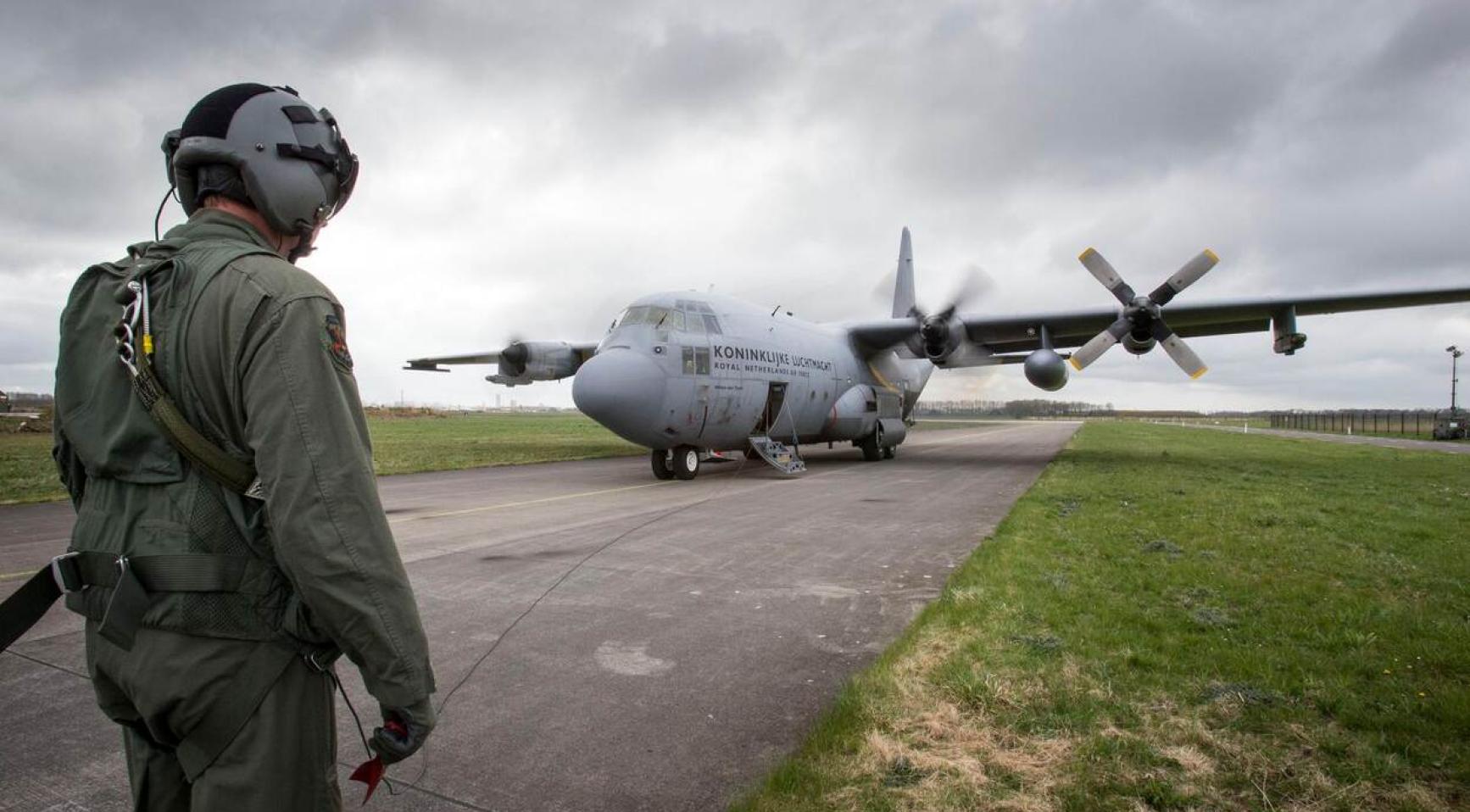The Netherlands will begin participating in international air-droppings of emergency aid over Gaza, the Dutch government confirmed Friday, despite growing concerns from humanitarian groups that the tactic is dangerous and “largely symbolic.”
The first Dutch air-drop is scheduled for August 8 and will be carried out using a C-130 transport aircraft and crew from the Royal Netherlands Air Force, RTL reports. The aircraft will fly missions for two weeks as part of a broader coalition led by Jordan. The goal, according to Dutch officials, is to deliver basic provisions such as food to civilians in Gaza, where conditions have sharply deteriorated under Israeli restrictions.
“We expect Israel to do more to enable humanitarian aid via land routes and to fully honor its humanitarian agreements with the EU,” Dutch Foreign Minister Veldkamp (NSC) told the Tweede Kamer. “The humanitarian catastrophe in Gaza must end.”
Veldkamp added that the Netherlands, both nationally and within the European Union, is increasing diplomatic pressure on Israel to support a cease-fire and release hostages. “The war must stop,” he said.
According to the Dutch government, the air-drop effort will be supported alongside Jordan and other participating countries. It is the second time the Netherlands has joined such an operation. In March 2024, Dutch C-130 aircraft also dropped food supplies over Gaza.
But aid groups and international organizations say the method is not only inefficient—it is also dangerous. “In a single aircraft, you can’t even carry as much aid as fits in one truck,” said RTL Nieuws correspondent Pepijn Nagtzaam, who previously flew with Dutch military forces on a similar mission. “You can’t control where a parachute lands, and civilians don’t know what’s inside. Gaza is extremely densely populated. People were injured or killed last year when packages fell on them or chaos broke out after the drops.”
The Dutch Cabinet acknowledged those dangers in a letter to lawmakers. According to government sources, the Netherlands is prioritizing land-based aid as the most effective method and is simultaneously investing in that route.
On Monday, the Cabinet announced a 1.5 million euros donation to a United Nations organization working to keep land corridors open from Jordan into Gaza. An additional 3 million euros will go to the Red Cross and Red Crescent, so they can respond rapidly once a combat pause is reached.
An unnamed government source said the air-drop decision came only after weighing the risks and limited reach of airborne assistance. “This is not a replacement for land aid. That remains our priority,” the source allegedly told RTL.
Since this weekend, Israel has again allowed foreign countries to conduct air-drops. France on Friday announced four flights delivering a total of 40 tons of aid from Jordan. French Foreign Minister Jean-Noël Barrot described the situation as “repugnant,” adding, “This is emergency aid, but still far from enough.”
Humanitarian organizations remain skeptical. The Red Cross said air-drops are “very dangerous, expensive, and often fail to reach the people who need help most.”
Amnesty International called the airdrops “mostly symbolic.” The UN Relief and Works Agency for Palestine Refugees (UNRWA) said the method is inefficient and urged governments to push for “unrestricted overland aid.” UNICEF was even more blunt, calling the air-drops “a show.” A single package, the organization said, “only helps someone who happens to be standing in the right place.” Items such as incubators or water purification systems cannot be dropped from the air.
“We need the Dutch government to bang the table with us,” the Red Cross said. “Give the Red Cross and other aid agencies direct and unrestricted access to Gaza.”
Humanitarian access remains heavily restricted. Israel has cut off almost all shipments of food and medicine to Gaza for months, and only a trickle of supplies has resumed in recent weeks. According to UN Secretary-General António Guterres, the humanitarian crisis in Gaza is nearing total collapse. “The last lifelines for people are breaking,” he said this week.
A Dutch journalist reporting from inside Gaza described the situation as catastrophic. “I collapse from hunger,” the reporter told RTL Nieuws.
During a meeting this week with Jordan’s King Abdullah, Dutch Prime Minister Dick Schoof discussed additional ways the Netherlands can assist. Jordan remains a key player in the coordination of aid to Gaza.
